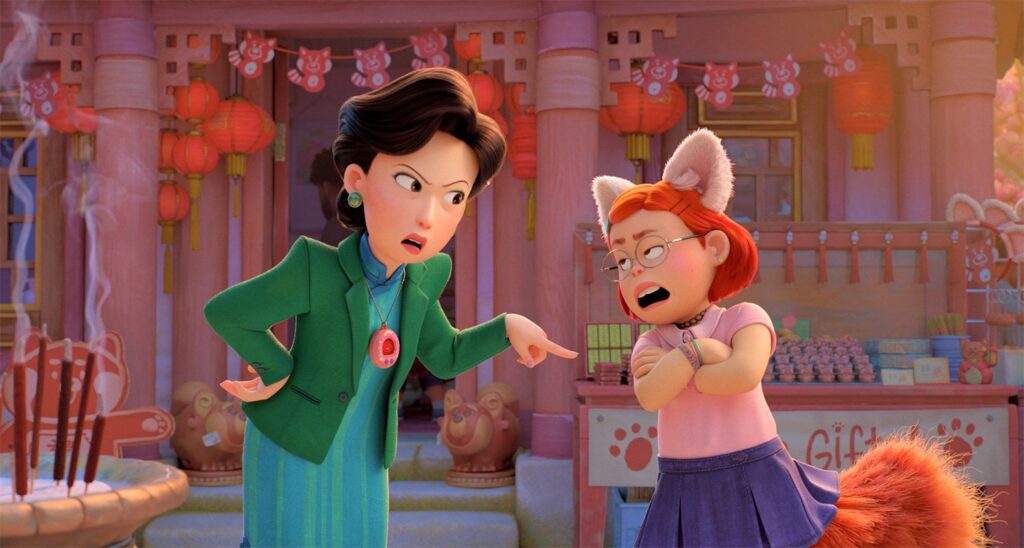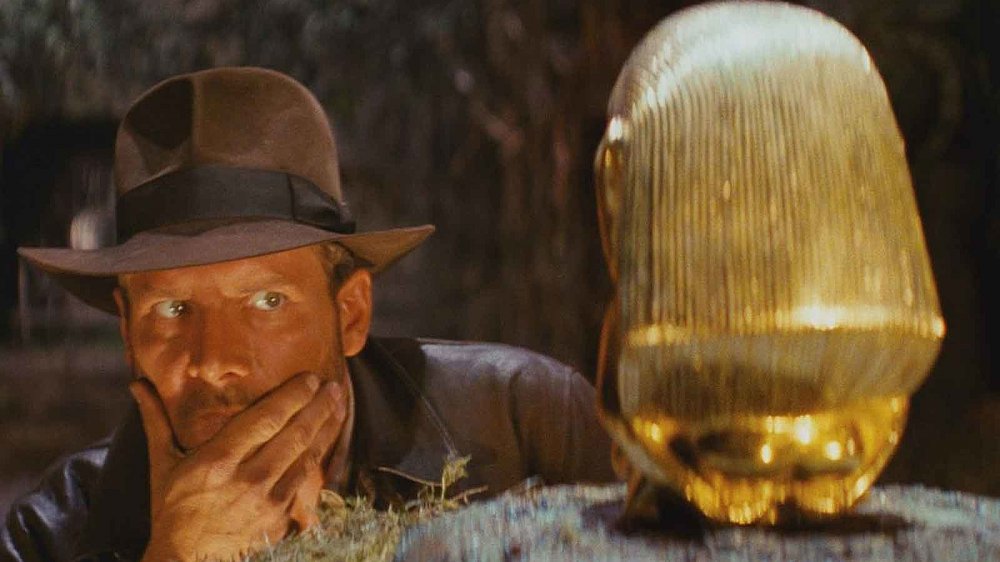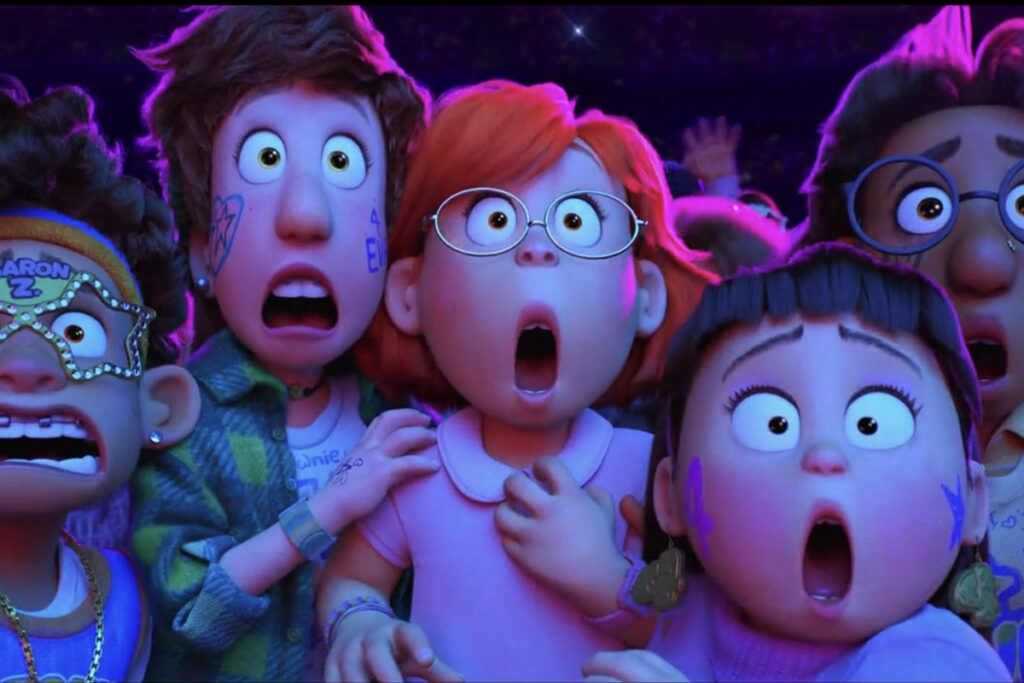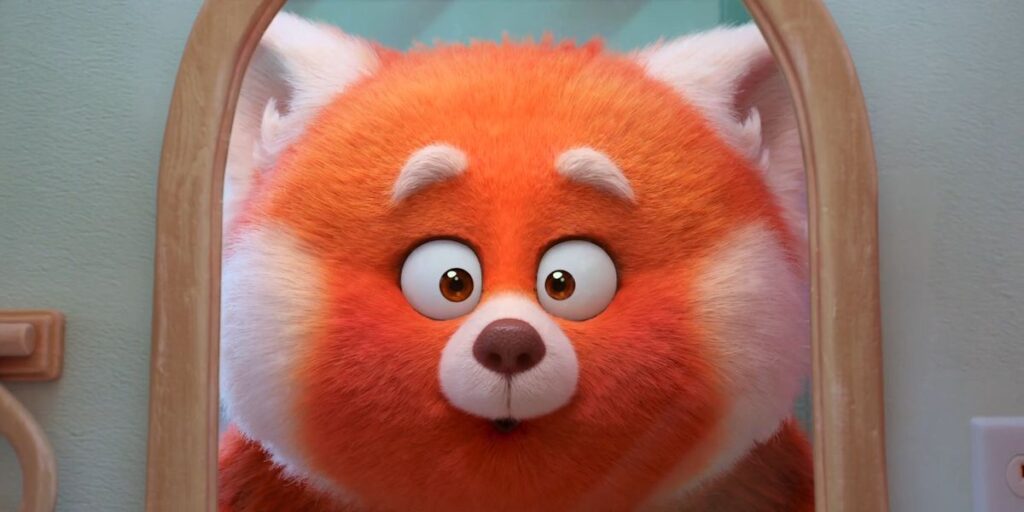I had an opportunity to rewatch Pixar’s Turning Red this week with my son in an actual cinema, and I’m happy to say it’s still utterly fantastic – even better on the big screen, where the film’s smorgasbord of detail shines.

The theme of the film is integration. 13 year old Meilin finds that the onset of puberty means she turns into a giant red panda whenever she gets emotional. She’s given the chance to banish the panda forever in a magical ceremony, but instead at the last minute chooses to keep the panda side of her nature and integrate it into her life. Know thyself, as the Oracle at Delphi advises us.
There are some distinct furry vibes here, if that’s your thing (c’mon, open your mind), and a great, honest take on teenage girls dealing with friendship and the advent of romantic feelings. (Well, the horn). It has anime nods and a Kaiju grandma and N-Sync-lite. And there is not one scene where you get the feeling that anyone said, ‘That will do.’ Instead the whole film feels like it was made by people who really believed in it and loved it and adored it and nurtured it. I loved it too, the first time I saw it and again this time.
I could take the chance here to talk about the value of specificity in screenwriting – one of the film’s many strengths is that it happens in a specific place, Toronto, and at a specific time, the summer of 2002. When you’re specific like that, authenticity can follow, and it’s authenticity that keeps the audience with the characters.
But instead I’m going to briefly discuss a controversy that arose when the film was originally released. The film got a poor review at the site CinemaBlend and was labelled ‘unrelatable’, and I have a couple of things to say about that.

First: wrong, wrong, wrong! Wrong! What? Seriously? I think the gist of the idea was that the film was about the life of a 13 year old Chinese Canadian girl, and because it was so specific, if you weren’t a 13 year old Chinese Canadian girl, you wouldn’t get it.
What? I mean, sorry, what?
This is an age old problem, of course. Oooh, yes. Raiders of the Lost Ark, for example, bombed because not enough of the movie going public were academic archaeologists with whips, right? Stars Wars was a total disaster that disappeared without trace because it turned out that no-one in the audience, not one person, had ever been a farm boy on the planet of Tatooine.

Okay, so I admit it’s true that Turning Red will only appeal to a few limited groups of people. I’ve listed these groups below:
People who have been 13.
People who will be 13 in the next four or five years,
People who have or once had parents.
People who have ever worried about meeting the expectations of an older person they admire.
People who have had friends.
People who like music.
And finally, people who have bodies.
If you’re not in one of those groups, okay, sure, go and see something else. And good luck.

Secondly, and more seriously, this reminds me of one of the most heart-sinking notes you can ever get about a script. ‘It’s not relatable.’ ‘I showed it to my son and he thought it wasn’t relatable.’ That’s a real note I’ve received on a script I’ve written. And frankly, I think it’s stupid.
If you get the note ‘it’s unrelatable’ on your script, I think it means one of two things.
Either (a) the person giving you notes is incapable of empathy. If that’s the case, you have my permission to ask them if they really believe they should be working in the arts.
Or (b) they mean something else. Usually I think when people say a script is unrelatable, they mean it’s IMPLAUSIBLE. ‘I hit a road block in the story because I didn’t believe the teenagers would venture into the haunted house alone.’ ‘I didn’t believe the newspaper magnate would spend all that money trying to reclaim his childhood when his sled was right there.’ That’s fine. That’s an understandable note. If audiences don’t believe your characters, you have a problem. But it’s not ‘unrelatability’ that’s being described. The people in your script who do implausible things can still be people that we recognise and identify with. People empathise with R2D2, for goodness sake. Or a shell with shoes on. The issue is plausibility, not relatability. That word ‘unrelatable’ should be expunged from the dictionary.

We don’t go to the movies to look in a mirror. Or rather, yes, that’s EXACTLY why we go to the movies. But we know that the mirror contains multitudes. Just as we do.
